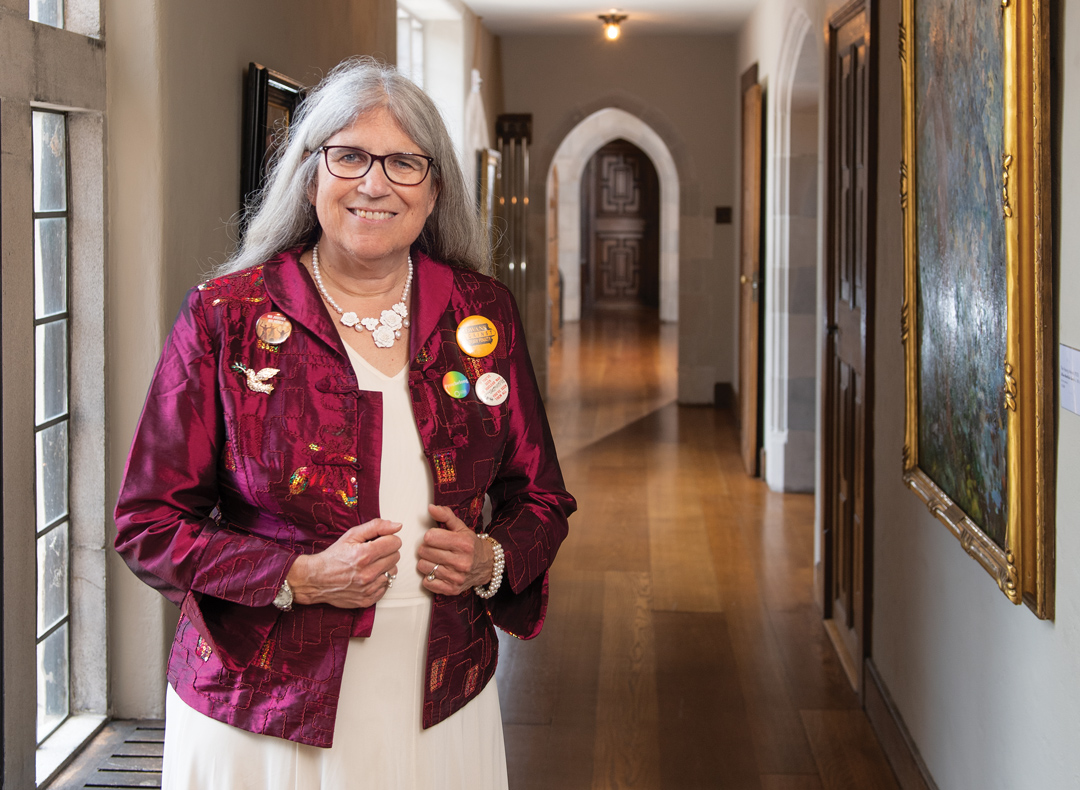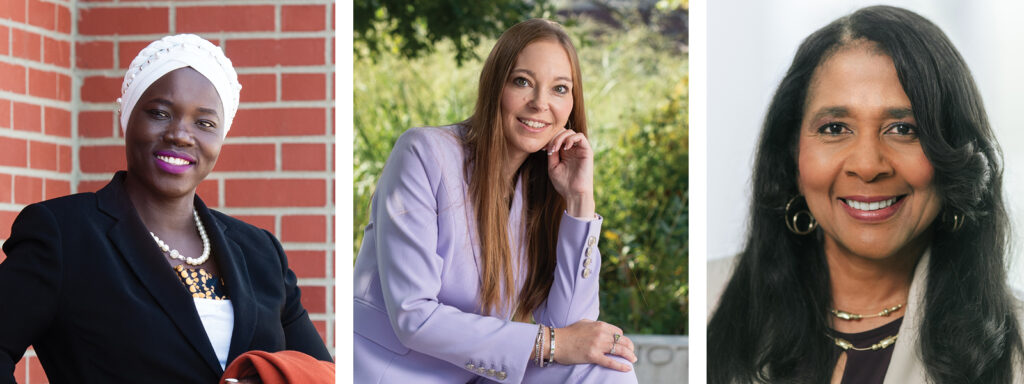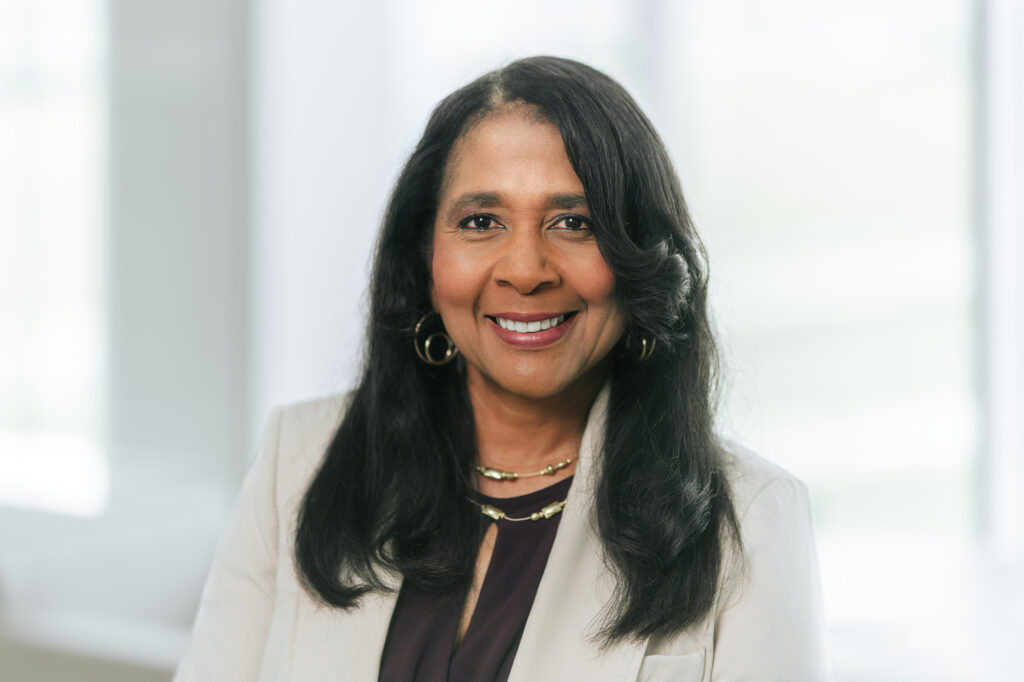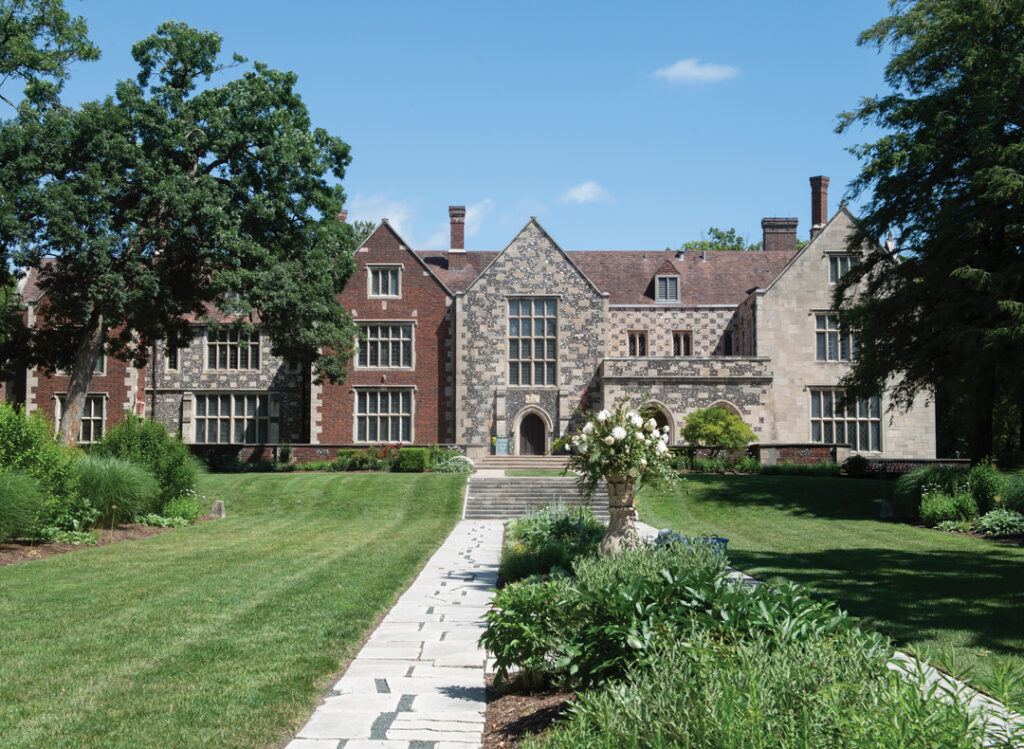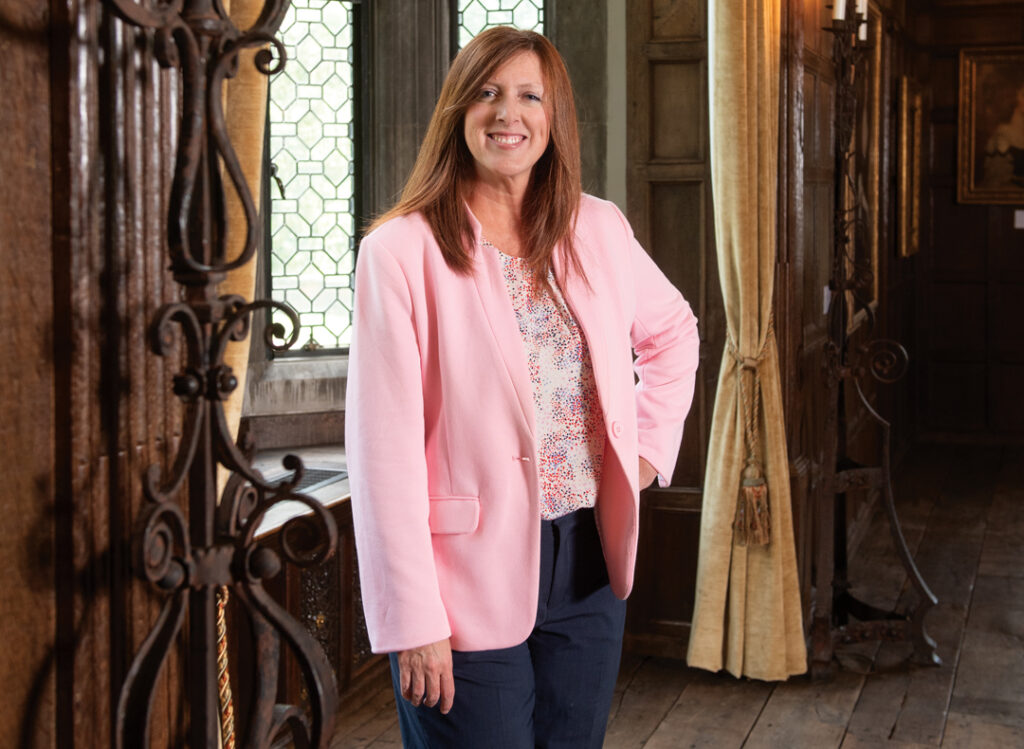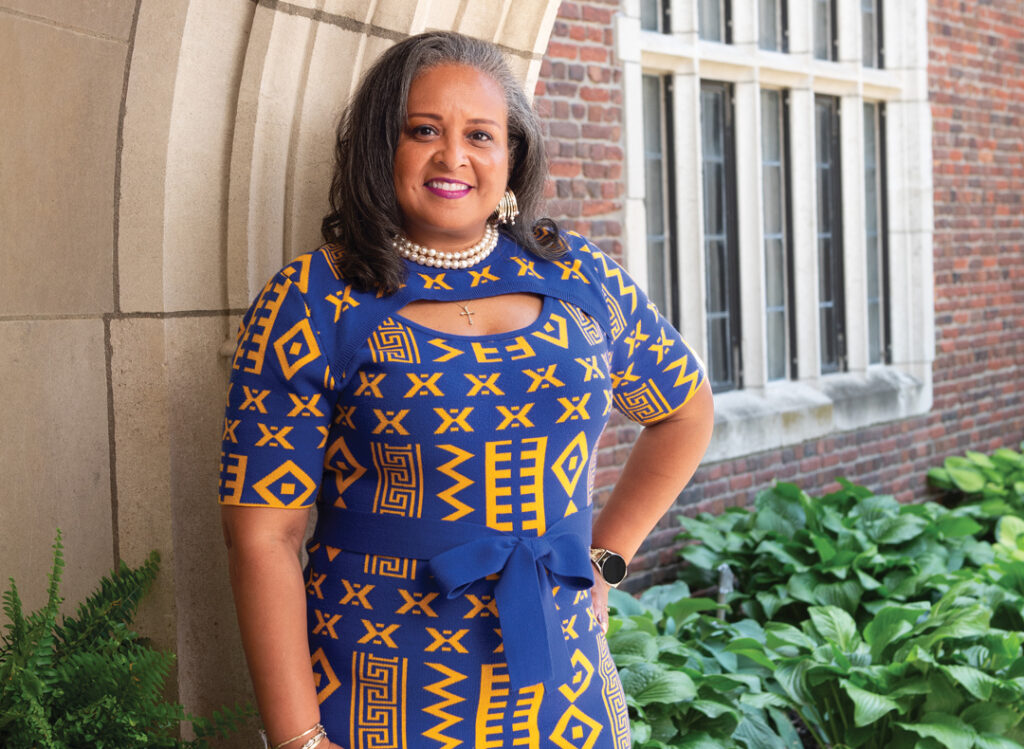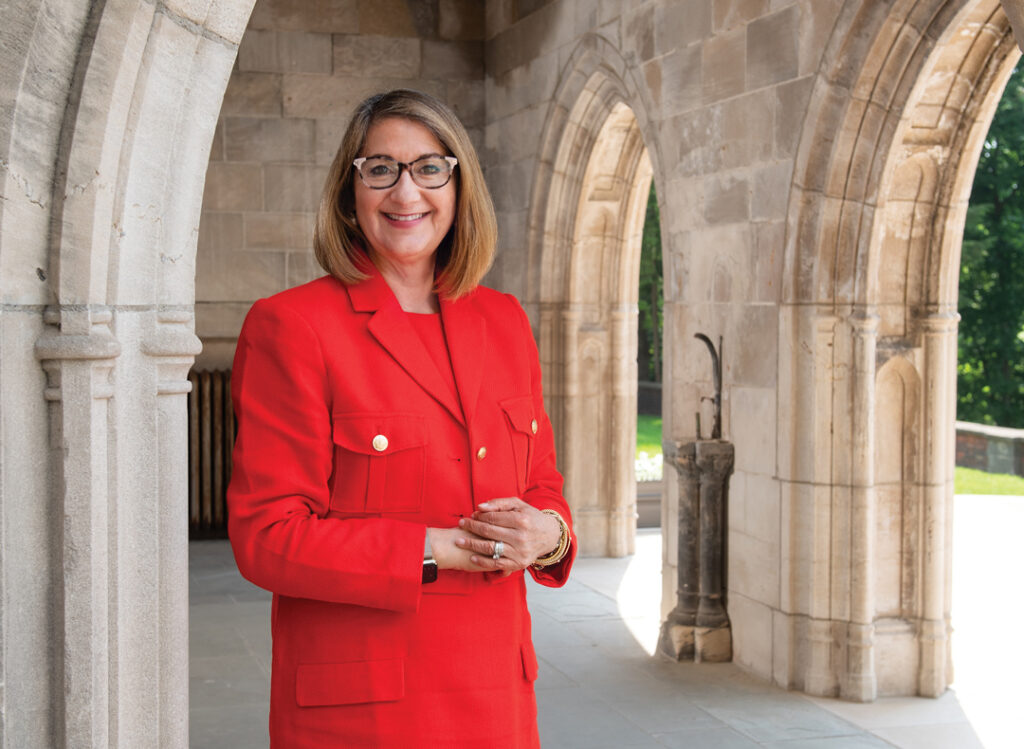Sally Frank: 2025 Women of Influence Honoree
professor of law, Drake University
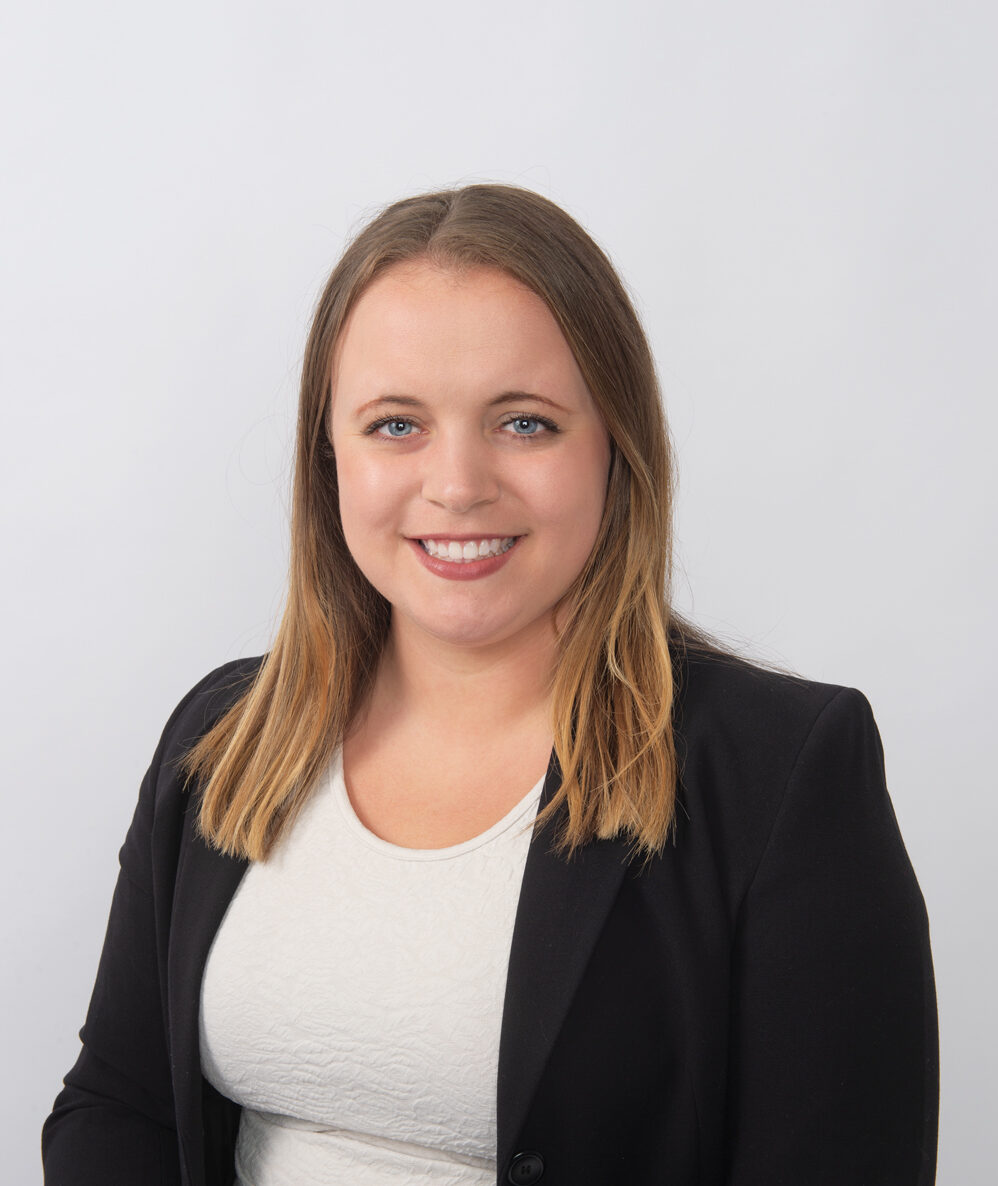
Education: Bachelor’s from Princeton University, law degree from New York University School of Law, master’s in clinical legal education from Antioch University
Hometown: Des Moines
Family: Daughter Havah Frank, sisters Barbara Frank and Judy Frank
Hobbies: Working with protesters, watching the Yankees and NCAA women’s gymnastics, not really a hobby but observing Judaism and being active in organizations within Reform Judaism
Three notable accomplishments:
- I sued Princeton University and its all-male eating clubs for sex discrimination when I was a 19-year-old student and won with an end to the case when I was a 32-year-old professor at Drake.
- I served on the Social Action Commission of Reform Judaism for many years and helped draft many resolutions in support of LGBTQ+ individuals. The Reform movement’s support for marriage equality was mentioned in a footnote in the Varnum decision (the case that won the right for same-sex couples to marry in Iowa).
- I have trained a large number of students to practice law with professionalism and care for their clients.
How have you helped improve organizations you’ve been a part of?
I have been on my Temple board for probably 30 years. When we had only an interim, part-time rabbi, I led Torah study and Saturday morning services most weeks that the rabbi wasn’t there and led Friday night services half the weeks he was away.
I was on the founding board of Iowa Migrant Movement For Justice. It is hard to pinpoint specific ways I have improved organizations while serving on their boards. I believe that my participation has been helpful to each of the organizations.
I improved Princeton by forcing the all-male eating clubs to go co-ed. I have also been actively engaged in Drake Law School’s work beyond my teaching. With shared governance I believe I have been part of improving the school and the university.
What motivates you?
The Jewish obligation to engage in tikkun olam (the repair of the world).
Is there a memory or experience from your formative years that continues to influence your approach to life?
In fifth grade we had an assignment to watch the news. I heard nightly reports about the Chicago Seven (or eight, if you include Bobby Seale), which did not go along with the civics I was learning. The next year I watched “Inherit the Wind” about the Scopes trial (a Tennessee teacher was prosecuted for teaching evolution, which was forbidden).
With both I decided I wanted to be like William Kunstler – to keep protesters on the streets – and Clarence Darrow – to work with the American Civil Liberties Union and support civil liberties.
What piece of advice would you give to others who hope to make a difference in their communities?
If you see something that is wrong, work to fix it. It’s best if you can work with others, but do it alone if you have to. You can in fact “fight city hall.”
What’s a current goal or accomplishment you’d like to achieve?
To be part of the nationwide effort to protect democracy in the United States from Trump’s efforts at authoritarianism.
What is a favorite book, show, movie, podcast, etc., that you’d encourage others to consume?
The movie “Inherit the Wind.”
How do you try to find balance and joy in the many activities you take part in?
I set both broad goals that may not happen in my lifetime and very concrete small goals. For instance the broad goal is having peace throughout the world and real social justice. My concrete goal is to get a group of people to a particular protest or meeting. Also there are small wins when bad legislation is stopped, a good court decision comes out or good legislation is passed.
I also get joy when my favorite baseball or gymnastics teams win.
What is one of your guilty pleasures?
Too much TV.
What’s something many people don’t know about you?
How much of an avid Yankees fan I am.
Anything else you want to add about yourself?
I am an observant Jew in the Reform movement. Much of my activism comes from my understanding of Jewish principles. All people are created in the image of God and have the spark of the divine in them. Thus all must be treated with dignity and equality. Also the principle mentioned above of repairing the world comes along with it the notion that God did not complete the work of creation. The Eternal One (looking for a non-gendered reference to God) left it for us to be God’s partners in the work of perfecting the world.
I try to do my part in this work. At the same time I recognize what Rabbi Tarfon said, “You are not required to complete the work but neither are you permitted to refrain from it all together.” All we do helps.

Emily Barske Wood
Emily Wood is special projects editor at Business Record. She covers nonprofits and philanthropy, HR and leadership, and diversity, equity and inclusion.

